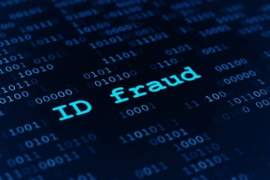
Misrepresentation Explained

What is Fraud?
Fraud is defined as an illegal criminal act that consists of the – alleged – purposeful misleading of a victim in a harmful fashion; the motives that may exist within a fraud charge may be facilitated by the intention of gain through deceit.
Fraud is a broad classification within the legal spectrum, which can be manifested in a wide variety of forums and settings. Legality surrounding the personal privacy, space, and domain entitled to every citizen of the United States is considered undergoing a breach in the event of a fraud charge, which may include the unlawful use of personal records, documentation, and data belonging to another individual.
Legal Terminology Associated with Fraud
Scam: An illegal, deceptive, and structured plan undertaken in order to purposely defraud its participants
Identity Theft: The illegal assumption of the identity belonging to another individual with the hopes of gain and profit through fraudulent acts; identity theft may take place with the expressed intent of committing fraud, theft, exploitative acts, and harm with the hope of garnering personal profit or gain as result of their actions
Misrepresentation: The deliberate deception or misleading of individual – or entities – in order to fallaciously convey inaccurate information; this is a common theme that takes place within fraud charges
Falsification: The criminal act of and individual’s – or entity’s - attempt to present fallacious or fraudulent facts, documentation, or reports as legitimate or accurate; within the realm of identity theft, the falsification of personal documentation belonging to the victim of this type of fraud may take place in order to achieve economic gain
Counterfeit: The illegal and unlawful reproduction, circulation, or recreation of an item with the intent of defrauding individuals in the midst of purchase
How Does Fraud Take Place?
The prosecution of computer fraud includes any and all parameters with regard to the implicit legislation, decorum, legality, and ethics with regard to computer networks, the internet, electronic commerce, the online marketplace, and commercial activity taking place within a virtual setting; Online Identity theft may take place as a result of the unlawful acquisition of personal, private, and financial information belonging to the victims involved.
The classification of Financial Fraud is applicable to the activity, exchange, and the circulation of monies or currency; in the scope of a charge, financial fraud can occur in a variety of fashions, including the intrusion into the personal or private domain of another individual, clandestine electronic activity with the intent of unlawfully obtaining personal information, and the falsification of documents belonging to the victims of identity theft.
NEXT: Understanding Credit Card Fraud





















